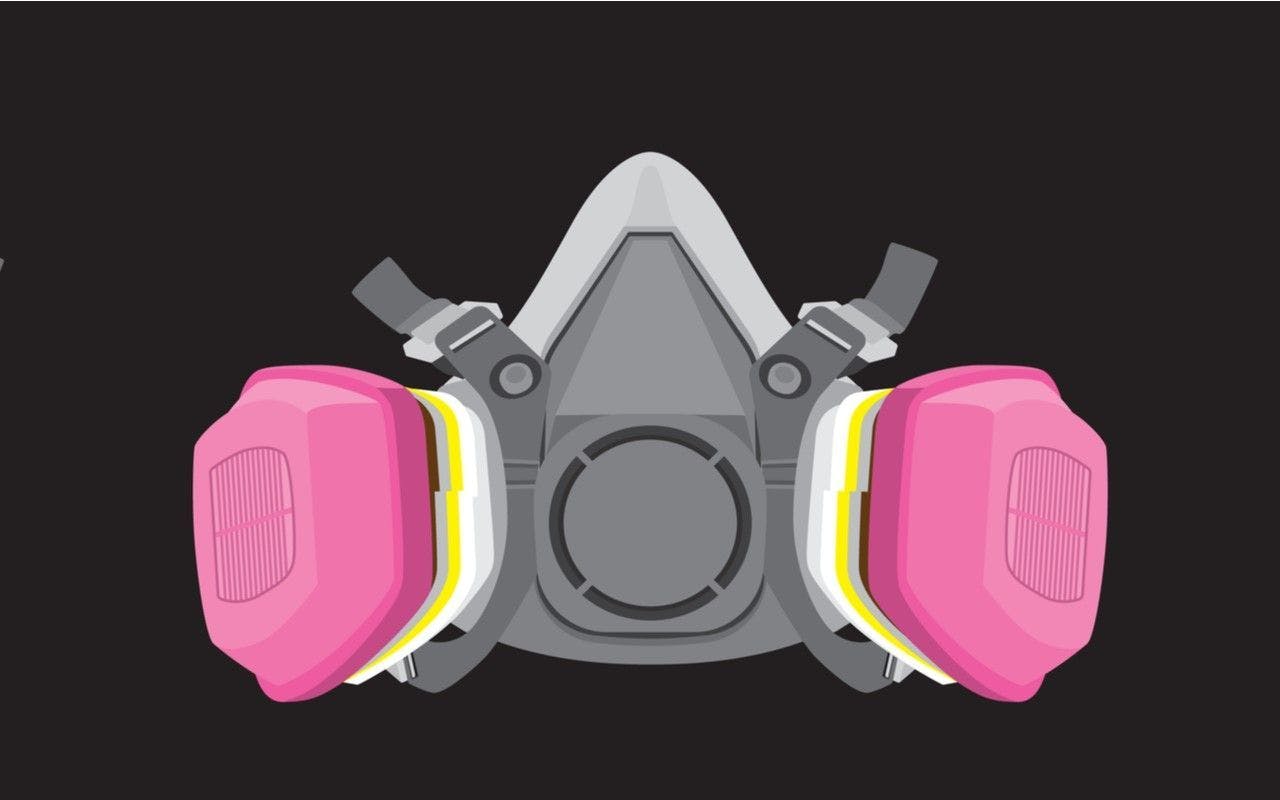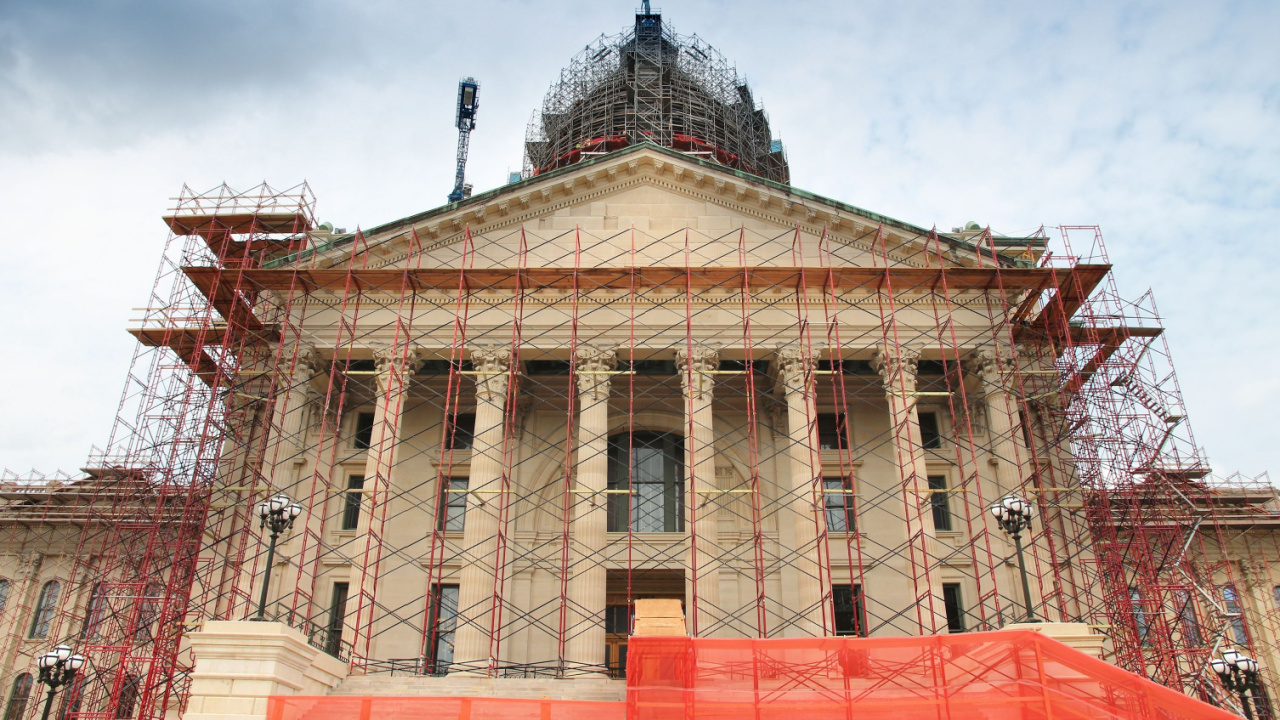
OSHA Unmasks New Pandemic Respirator Guidance
On April 3, the Occupational Safety and Health Administration (OSHA) released temporary enforcement guidance to employers currently faced with a shortage of N95 respirator masks because of the COVID-19 pandemic. The guidance provides discretion when enforcing OSHA's Respiratory Protection standard and applies to all industries.
The Respiratory Protection standard contains various requirements, including a written program, medical evaluation, fit-testing and training, that employers must follow to ensure workers are provided with and are properly using appropriate respiratory protection when necessary to protect their health. Employers are still required to identify and evaluate respiratory hazards in their workplace, and provide an appropriate respirator when it is necessary to protect the health of the employee.
However, noting that the United States is in short supply of appropriate respirators at this time, the new guidance provides that, on a case-by-case basis, OSHA may choose not to issue citations where an employer is making a good faith effort to comply and is prioritizing respirator use appropriately.
If an employer is facing a shortage of N95 respirators, it should consider these alternatives, in this order:
1. Consider alternative measures to decrease the need for N95 respirators. For example, employers should consider whether it is possible to increase the use of wet methods or portable local exhaust systems. Employers should also consider using partitions, restricting access to facilities, and using other engineering controls to protect workers. Some work may be able to be performed safely if done outdoors. Employers should use an alternative only if workers will be protected without respiratory protection. In some instances, an employer should consider suspending non-essential work.
2. Consider an alternative class of respirator. Other appropriate NIOSH-certified products, such as N99, N100, R95, R99, R100, P95, P99, and P100, may be alternatives if an employer is unable to obtain N95 respirators. Employers may also consider non-disposable, NIOSH-approved elastomeric respirators or powered, air-purifying respirators (PAPRs). Employers should make sure any alternative they use is NIOSH-approved. Note that respirators imported from foreign countries may not be NIOSH-approved, and should be used only after the employer has attempted other alternatives, as described below.
3. Extend the use of N95 respirators. Employers may permit the same worker to extend the use of a respirator, as long as the respirator maintains its structural and functional integrity. Employers should address in their written policies the circumstances under which a disposable respirator will be considered contaminated and unavailable for extended use. Extended use is preferred to reuse, since a respirator may become contaminated during removal or placement.
4. Allow reuse of N95 respirators. Employers may permit the same worker to reuse a respirator, as long as the respirator maintains its structural and functional integrity. Employers should address in their written policies the circumstances under which a disposable respirator will be considered contaminated and unavailable for reuse. If reuse is necessary, ensure that employees are following an appropriate sequence for donning and doffing.
5. Use N95 respirators that are past their expiration date. Recent testing suggests that certain older N95 respirators will provide greater protection than standard surgical masks or other non-NIOSH-approved masks (such as homemade masks). Employers should first consider using expired NIOSH-approved respirators released from the U.S. Strategic National Stockpile. If using an expired respirator from their own supplies, employers should contact the respirator manufacturer or an independent lab to test those respirators prior to use. Workers should be notified if they are using an expired respirator, and employers should stress the importance of inspecting these respirators and ensuring a proper seal. Expired respirators should not be used by health care personnel in certain high-risk circumstances, such as when performing respiratory procedures on patients who are or may be infected with COVID-19.
6. Use a foreign-certified respirator. If an employer has exhausted their ability to use NIOSH-certified respirators, they may use an appropriate respirator certified in accordance with the standards of another country of jurisdiction. OSHA has provided guidance regarding what foreign products may be used in lieu of a particular NIOSH-certified product here.
Employers may use face masks (such as surgical masks) only if they are unable to provide protection using any of the alternatives described above. Employers should allow the use of a homemade mask or improvised mask only as a last resort. However, homemade masks are not considered appropriate personal protective equipment, and should ideally be used in combination with other equipment, such as a face shield.
The CDC has provided additional guidance for healthcare personnel, including information about how to prioritize the use of N95 respirators by activity type.
Friday's guidance was provided in addition to guidance OSHA issued on March 14, which allowed OSHA field offices to exercise discretion regarding the annual fit-testing requirements for healthcare personnel, but did not change enforcement of other requirements, such as maintenance and care, and was not applicable across all industries.
This guidance is effective immediately and, while expected to be temporary, will stay in effect until further notice.
Reprinted with permission from Venable Insights, April 07, 2020.
Ron Taylor is chair of Venable’s Maryland labor and employment practice group. Recognized as one of the leading lawyers in Maryland, Ron advises and defends employers—including public and private business of all sizes, as well as nonprofit organizations nationwide—on labor, employment, in addition to occupational safety and health matters. He has extensive experience handling wage and hour, privacy, non-compete, collective bargaining, employment discrimination, disability, occupational safety and wrongful discharge issues. He has obtained summary judgment or dismissal of claims, or prevailed after hearing in numerous employment and occupational safety cases.
Related stories








